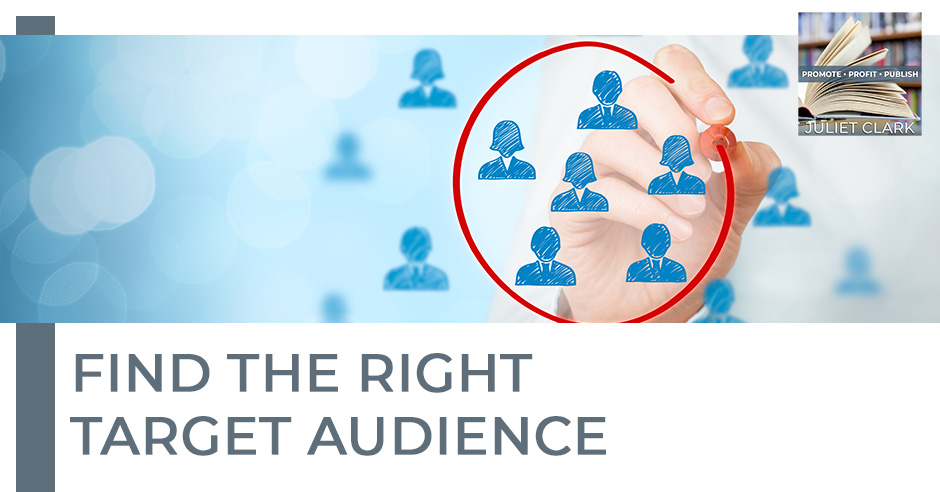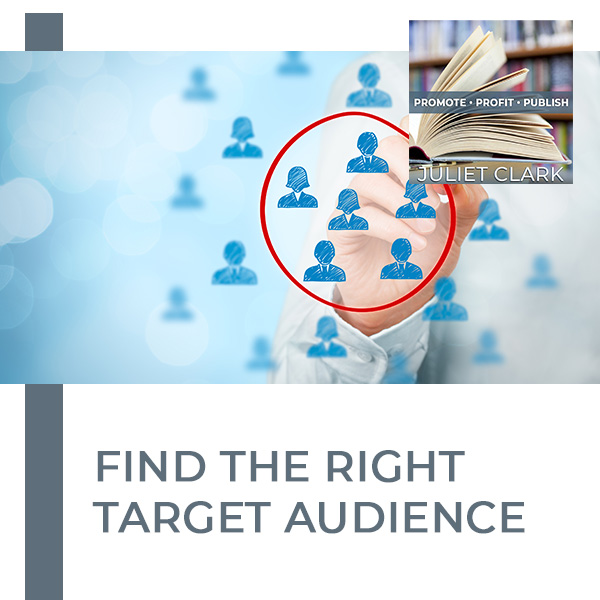
In book writing, you have to have a clear understanding of your target audience. That will allow you to tailor your content style, and messaging, to resonate with your readers. Maggie Mills, an experienced ghostwriter, says it’s important to write for the right audience instead of trying to please everyone. Maggie and Juliet stressed the importance of authenticity and research in writing books. Doing research and being authentic will allow you to create a stronger bond between you and your readers. Being authentic also requires you to use your language, voice, and tone to relate yourself to the readers. Learn to create a more engaging, relevant, and impactful book that resonates deeply with your readers today!
—
Watch the episode here
Listen to the podcast here
Find The Right Target Audience
We have another book development co-chair as one of our guests. You might wonder, “Why are pushing book development so hard?” We’re getting up towards the end of the year and this is usually when people decide what their goals are for the following year. We are hoping that all of you will tune in. If your goal is to publish your first book, it’s time to hire a book developer.
I’ll get to introducing Maggie in a moment, but I do want to remind you, to run over to AuthorSuccessHandbook.com and grab your copy of my new book, the Author Success Handbook. In this book, I go step by step about how you should be building your platform. I know for a lot of you, you’re working full-time, you’re writing a book, and you do it piecemeal what you think it should look like. This is a proven process that we have used with our clients that starts out with foundational tools that are very important to make sure that you have a stable platform that’ll carry you through the book launch.
Our guest is Maggie Mills. She’s the most published author you’ve ever heard of. She wrote her first TV script when she was five years old. Curiously, it was never picked up by any of the major networks, go figure. She didn’t have the right agent in five, I guess. Maggie continued to hone her craft and is now published worldwide. Still, you’ve most likely never heard of her. That’s because she’s a ghostwriter. Maggie has spent her decades-long career happily behind the scenes making other people look good. Maggie is a shape-shifting literary magician who weaves words into pictures and makes sinners sound like saints.
Her personas include a preacher or two, a biker abroad, healers, a psychic, a couple of actors, cybersecurity slurs, a politician, a slew of entrepreneurs, a few millionaires, and a Wall Street wiz. She believes that everyone has a story to share and a truth to be told. Her calling is to release those narratives from the subconscious of her clients and broadcast them to the audience most eager to read them. I’m super excited because we’re going to talk about one of those foundational tools, finding your right target audience. Stay tuned for Maggie Mills.
—
It’s so great to have you back on the show.
This is fun.
We’re going to talk about finding the right target audience. One of the things that you and I both agree on is that this is a foundational tool that needs to be done above and beyond everything. Can you take us through what you do with your clients to make sure that that is a fundamental part of what they’re building?
I’m so glad you’re addressing this topic because it’s important and fun. This does not have to be intimidating for the author. As I’m sure you experience, authors will come to you and they have brilliant ideas for books. They have a lot of knowledge and information to share. They tell you, “This book is for everybody.” Maybe not unless you’re writing the next Bible. I’d like to renegotiate my rate on that, in case you are. You’re probably not writing for everyone.
There’s a good reason not to do that. A lot of that has to do with marketing. Some of it has to do with making your job as a writer easier when you’re not trying to please everybody. We know we can’t please everybody. There are ways to narrow down who your reader is. We start with a lot of questions. For instance, if it’s someone writing a book about business, we will talk about, “Who are you already serving?” That might be your market. As we talk, we’re going to drill down into some more details right now.
One of the things that’s very helpful to the writer is, once they’ve decided upon their target market to visualize the person reading their book. As they’re working through the book, write to that person. It’s similar to how people work on video. It can be very intimidating to think you’re broadcasting to millions and thousands of people everywhere. If you talk to one person, it makes the entire thing easier and it keeps you on target with what you’re writing or what you’re speaking to your audience.
It’s so funny you said that, the millions versus the one. I was on TV and I was nervous for the first time, but I do this every day. You’re right. When you get that mindset in your mind, you can create some anxiety for yourself. Let’s pretend that you and I are working together and I’ve brought you a business book. Where would you start with me? What are those basics that I need to be able to tell you about what I want to do?
How do you want your reader to use your book? With a number of business books, it’s not essential that you’ve been doing this for 40 years. If you have even a little bit of knowledge, you have more knowledge than the neophyte or someone who’s thinking about your business and wants to find out what it’s all about. You’re already in a position of authority.
With people who have been in the business a lot longer, they have much more to say. They do have a broader audience. We’ll talk about what you want your book to do. Some people are using their books as a platform to get started as speakers. They want to expand their audience. As they’re working through their books, I will suggest to them, “Relate stories about times that you have already spoken, because that puts a message in the mind of the reader that you are available to come to speak at their event or be a guest on their podcast.”
Relate stories about times that you have already spoken. Because that puts a message in the mind of the reader that you are available to speak at their event or be a guest on their podcast. Share on XSome authors want to use their books almost as a workbook. If people go through this book and they follow all these steps, they will accomplish this thing. If that’s the case, that’s very usable, you prepare the reader for that in the way you write the introduction to the book. You can put in there things like, “A great way to read this book is to keep a notepad or a journal with you, go through it, and make notes as you’re writing.”
Some authors will include a recap or questions at the end of every chapter so that it can be used as a workbook. Questions to get the reader thinking about how they would handle certain situations or the next steps to take. Some authors want to write and they do write accompanying workbooks where it goes into more detail. You then give a sample of what the workbook would be like. “Here are two questions, but you can go into more depth.” That’s also an upsell to another product you have.
For some authors, the content they feel must be read in order. There’s a certain order. You have to do everything. Understanding how your book is used ahead of time has to do with your audience who’s willing to do this and how you’re structuring the book. Some authors will say, especially with inspirational books, to read the name of the chapter and choose a chapter that speaks to you. You do not have to read the book in order. Knowing your audience helps you structure your book as well.
Here’s another thing. I’m going to throw it out to you guys. Just because someone buys a book doesn’t mean that they’re going to work those questions. I experienced this myself. Somebody gave me a book when I was going through a divorce and I wasn’t ready. I stuck it on the shelf like, “I’m not going to read that.” About a year later, I pull it down and I was ready for it. Don’t be hurt if you think that everybody needs to be happy and everybody isn’t buying your book. There’s a time and place in everyone’s life when you know these things are inspirational or are ready for healing or whatever that book is about. Your book is not for everyone.
You bring up a good point. A lot of people don’t want to go into that detail. They want to read very quickly. We’re receiving information in smaller bits, more of it and faster, which can work to your advantage. If you are trying to build a coaching business, people will get a look at your book. They want to see your personality coming through and they’re going to decide, “I don’t have the patience to go through all this. I want to hire Juliet to tell me what to do off the ledge. Where’s her contact information? I need to sign up right now.”
That is very true. We find that a lot. We don’t do it for you, but people want to be led through the process as well. If you’re an entrepreneur, that’s a great point. That book is a nurture tool. As a ghostwriter, if you wrote a book on ghostwriting, I might want to look at a couple of different books and figure out who is it that I feel I’m going to have the best relationship with in writing this book. Sometimes it’s tough. When any editor gets out their red pen, it’s intimidating.
It is. It is so important for an authentic author’s voice to come through in almost every situation. Unless you’re writing an academic book or because you need this at your university for your PhD or to get tenure. Let’s face it, they’re dry. They have to be dry. You don’t want to read textbooks. You carry your reader along. That doesn’t mean to be incorrect, but that does mean to keep your voice there to use some of the expressions that you use in your daily life. You can still be very professional and have a lot of credibility.
It is so important for that authentic author's voice to come through. Share on XThis is especially true when it comes to cussing. As a general rule, I’ve always told people, “Don’t cuss. Pretend your grandmother reads this book. She is a Southern Baptist woman who matches her shoes and purse, goes to church, and has blue hair. She’s going to be waving her finger at you if you use cuss words.
At the same time, I am working with an author and he’s darling. This is a big tough tatted-up guy who uses the F-bomb once or twice every sentence. If we left it out, no one would believe you wrote this book, so go ahead and cuss. Is your audience all your grandmother’s friends, or are your audience bikers or other people in the industry who know you or know this style? That’s something to consider with your audience. How do you want to talk to them?
I would love that about grandmother. In my second book, a fiction novel, I wrote a sex scene and my best friend’s mother called me and she’s like, “Julia.” It was like, “Wow. I never thought that you’d be reading that.”
That she’d like it so well.
That she would scold me. What a bad girl. “What’s wrong with you, guys? You knew I was a bad girl.” Beyond that piece of it, I feel like a lot of times people go through the age, the demographic, a little bit of the psychographics, but there’s a lot of research they forget to do or they don’t know they need to do. Can you elaborate on that a little bit?
Research is a big part of writing. People who haven’t written before are very intimidated by the process, and I can understand that. If you make it fun, it can go by much more quickly and much less painfully. The research comes in adding credibility to the point you want to make. I’m not the only person saying this. I’m not the only person who believes there are gray aliens. I have witnesses. I’ve spoken to this person with a PhD and they took photographs. You want to be able to cite that in your book.
Here again, you consider your reader. For instance, I worked with a couple of authors and a wonderful book about being your own advocate in the medical system. These were people who had been in the medical profession for many years. No matter what profession you’re in, if you’ve been in there even for a little while, you know all the jargon. People tend to forget this is brand new to their readers.
There is a fine line between including your reader and explaining what the terms are, versus talking down to them. If you want to engage your reader, you need to use these terms because they’re going to come across them in their experience after they read your book. Explain the terms in the context instead of dribbling them out. Bunch of engineering terms. People will feel like, “I’ll never get this. I should already know what this means. I’m dumb.” There’s a nice way to do that.
That’s another way in including your audience. The research it takes to explain terms. Also, once you’ve chosen your audience, be mindful of the references you use. Are you referencing movies and songs? Will the generation of your audience understand what you’re talking about? Maybe not everybody knows who Bing Crosby is. Possibly Bill Cosby, but not Bing Crosby.
If you’re mentioning songs, and if it’s super important to the context, you can say, “The lyrics of this song, Back to the Garden by Crosby, Stills, Nash & Young, were super important to me.” If it’s super important that you mention it, put it in context. “It was released this year. It was a number-one hit. All the hippies loved it. I saw them in concert.” As opposed to assuming other people understand how profound that was. You need to give it a little more context.

Target Audience: If it’s super important that you mention it, put it in context.
Knowing your audience, think of something like, Baby It’s Cold Outside, which was a staple Christmas song for someone our age. Now, this newer generation thinks it’s a molestation and invasion song like it’s anti-feminist. If that’s your audience, you don’t want to reference it with these glowing things. If the Millennials are your audience, you don’t want to talk about how fantastic and life-changing that song was. They’re going to look at you like, “I’m putting this down now.”
That is a perfect example because I’ve always loved that song and I’m a pretty hardcore feminist. You would see it in movies and programs. It brings up other memories and we aren’t quite as offended by that.
Every time I hear that criticism, I’m like, “Lighten up. Get a life. Really? We’re going to micromanage the lyrics of this song and make something bad out of it?” We’re going to do that. Let’s do it to wrap. Moving on from that, a lot of what we do in the Build Your Author Avatar program is we have our people look at media too, because they’re going to be promoting their book at some point.
I’m going to give a great example. I love Kevin W. Jones. His book came out. When Kevin came to me, he is an LGBTQ hardcore NPR listener. We had him go through, look at other media, and think about, “What is your foot in the door being an NPR listener over at Fox? You don’t want to pigeonhole yourself into places where you may not get the opportunity to be on media because you didn’t open your mind to it. How would you approach looking at alternative media to have them figure out where their spot is, or do you?”
A lot of that starts off with who you’re already listening to. Who do you like? Where do you want to be? Go follow that media for a while if it’s your dream to be interviewed by someone in particular. I had this with an author. She’s a politician. There were people she wanted to be interviewed by and it represented a certain side of the aisle. She was very aware. So much of this has to do with visualization. Visualize yourself being interviewed on that program. What would you say? Put that in your book. Are you going to be interviewed on the opposite side of the aisle? She is now working on her second book and she’s reaching across the aisle. That is opening up more of her interview opportunities.
That’s another thing to keep in mind. As we were working on her book together, I said, “Every point you make and every reference you cite, people are going to look it up. They’re going to check it out. You want to quote very credible sources because their credibility is your credibility. I know you like what this crackpot says and it’s hilarious, but they are a crackpot. When you are interviewed on Face the Nation, you need to be able to answer this question. It’s very easy to sling your opinions out there, but you have to back them up. Be very true to your voice. If you want to sell your book, you cannot be the lone person with that opinion. There’s a place for that, but maybe not in book sales.”
We ran into this with the late Lesley Michaels. In her feminism book, she was aimed at several left-leaning outlets and there was so much competition when the booking agents went to book her that there were much more famous names than her in the feminist field. The people that were interested were the NTDs, Newsmax, OANN, and those on the right who wanted to know more about what she said. She was standoffish about, “I don’t like that,” but there’s an opportunity for half of America who doesn’t know who you are to see what you’re all about. I thought that was probably a good lesson for one of our authors. Don’t pigeonhole yourself to one media experience.
Don’t assume your reader or future viewer on a program is going to agree with you. That’s why it’s so important to do your homework and your research. This is the time you can change minds and hearts because you calmly explain your point and why you have arrived at that decision. In many cases, why are we writing that book? We want to win somebody over to ourselves. You can do that with logic and heart combined.

Target Audience: It’s so important to do your homework and your research, because this is the time you can change minds and hearts because you calmly explain your point and why you have arrived at that decision.
Back to the Kevin example, there was something that happened and he jumped on our weekly call with me. He said, “I’ve been flipping back and forth between NPR.” I think it was Fox that he was going back and forth with because I made him get out of the liberal bubble, go over the other side and take a look. He said, “I am shocked at how different this looks.” You can take your book and spin it into anything you want to. That’s what politicians do all the time.
There’s a website that I go to quite a bit because they will take the same news story and they’ll show how it was presented from the far left, the central, to the right, exact same news story. It begins with how the headline is written and the photo clips. Somewhere in the middle are facts. Everything is then an opinion. It’s wonderful that you are encouraging authors to consider the other side because this is such a wonderful experience for all of us. I work with people all the time who are very different than I am and hold different opinions than I do.
I was even given an assignment once from a publisher, “Can you help her? None of our other writers want to work with her.” That set me up for some fear, but I do have a mortgage. What I have learned is that much like being interviewed on different sides of a topic by different news programs, this is an opportunity to understand another human being and where they’re coming from. I have found cases where I thought, “We’re different.” I’ve come to care for my authors. I feel such a maternal feeling for them. When they’re ready to go off to the publisher, I feel like I’m kicking my little bird out of the nose. “I’ll be here if you need anything. Call me.”
It’s like taking a kid to college. They get out the door and you’re like crying all the way home.
I didn’t know parents took their kids to college. I waved goodbye to mine in the driveway and said, “Call me when you get there.”
I drove mine up from California to Utah. We decided to stay a few days, and then he got into the dorm. We never saw him after the first night. My mom went with me. We’re looking at each other like, “What’s there to do in this town since our child doesn’t like us anymore?” He’s making friends. He’s doing what he is supposed to do.
It helps you find the compassion to work with someone and be interviewed by someone who’s very different from you and has a different viewpoint. We all learn.
It helps you find compassion by working and being interviewed with someone who's very different than you and has a different viewpoint. Share on XAuthors don’t tend to make a ton of money from their books. Most of the time, they are not going to directly get the ROI from the publishing that they put into it. One of the things you and I talked about before was those next steps. What is your money maker and how are you going to use that book to get there in this process? Talk about what you do with that because that is so important.
This is wonderful. You’re right. It’s one of those little things we need to tell authors upfront, “This is a great story, but it may not be a New York Times bestseller. It could be, but let’s talk about the other ways that you can generate additional income from this.” We’ve already talked about workbooks. We’ve talked about speaking. You can be invited for keynote addresses. You can develop a coaching business. You can bring more people into your company. You can create a program where you teach other people to teach your material. You can turn it into a podcast. You can turn it into an audiobook. Come on. Help me, Juliet.
There are tons of stuff you can do there, but the biggest thing for a lot of our expert authors is that nurture tool. I’m going to use one of our authors. Gretchen Hydo has a book called Break Free From Your Dirty Little Secret. She is a life coach who is niched down into, “I’m going to help you be your more authentic self, but you got to do some healing.” She has a workbook with it and she has courses. She’s not making a ton of money from that book per se from Amazon and Barnes & Noble. She is making money by having those as the roots of her workshop and getting people used to her work interested in it.
The workshop is wonderful because you can have an afternoon workshop. You can be brought on by a corporation to come and talk to their employees about building a certain type of skill. You can run your own workshop on an afternoon or a weekend. You can have a week-long workshop. You can take your workshops offshore. When you write the book, you are creating content for your workshop. Every chapter in your book can be a breakout session in your workshop. I worked with a speaking coach several years ago. I wasn’t writing for her. She was training me how to speak in public. I was a wallflower. Clearly, she’s very good at what she does.
She explained to me that, when you write something, think of it as an old-fashioned accordion. There are probably not a lot of accordion players anymore, but maybe we’ve seen these pictures, squeeze box. She said, “You write a large amount of content. That is your book. Once you have all this content, you can repurpose it. You have the workshop. It’s very easy to make a workbook out of your larger book. What you also have is future content for blog posts. You have all your social media content right there.”
When I’m working with authors, I will pull out certain phrases and I go, “This is quotable. Here we go.” We start making a list. “This is for social media.” We keep a running list, as we’re working on the book, of things you can use in the future. That is incredible repurposed content sitting right there. You write once. You use it 1,472 times.
We have a course called, I Love Content Creation, and that’s what we do. I love that you do that as you’re writing the book because we have people who are either writing the book or they’ve written the book, and we show them how to break it down. It’s so funny because, by the second session, they’re always like, “Why didn’t I know that?” You get overwhelmed and don’t think about it. The other thing is you have to remember when you’re doing that, you are a thought leader. Many times, when we do press releases, people will give us somebody else’s quote and we’re like, “You’re a thought leader. These have to be your quotes. They have to be your ideas.”
Here’s a fun place where this comes in handy. It’s the back cover copy. How often have you picked up a book from someone who did not work with you, you read the back cover, and you go, “This isn’t what happens in the book.” The book illustration. I love to read cozy mysteries. They are fun, fast reads. They’re a nice break because sometimes I work with some heavy material. I love cozy mysteries. I go through a lot of them and it cracks me up to see, “This author and the illustrator clearly didn’t talk because that is not the right type of dog that was in the book. The main character had a Terrier, not a German Shepherd. They drove a VW, not a Cadillac.”
I would tell you the funniest conversation. My son-in-law is reading my son’s book, but before when we were talking about it, my son was describing the one character in the book. Everybody in the room burst out. They’re like, “There are furries in your book?” My son was like, “No. She’s not a furry.” They’re like, “No. That’s a furry.” Now, we have illustrations done of every single character because I said, “If you’re describing it that way. They’re picking up furry and you’re not, something’s wrong here.”
It’s good to have a conversation illustrator and to look at that back cover copy and the description of the author, too, to remind the author that when you’re doing your bios, which are so important for marketing your book, your bio needs to match your book. People get very tied up and impressed with their own multiple degrees. That’s great, but if I’m picking up your book to read about recovering from grief, I don’t care where you went to college. I want to know that you were a widow at age 30, you got through it, and you live a wonderful life now. I don’t care that you were magna cum laude. Your bio needs to match what your book is.

Target Audience: When you’re doing your bios, your bio needs to match your book.
We have short, medium, and long bio. We ask for all three. We tell them, “In that long bio, we’re going to be putting this on the distribution websites, so we want you to be approachable too.” A lot of times when you throw out a magna cum laude from Stanford, people are like, “That’s a snotty school.” Not that it is, it’s a great school.
“I can’t read this book.”
Amy Powers is a great example. She’s a Vassar grad who got an MBA from Columbia and a Law degree from Harvard. She is one of the most approachable people on the planet. You have to be able to incorporate that in, especially if you have a business and you want people to buy from your business. You have to be approachable.
So many bios. Come on. You’re nicer than this. Let everybody know how nice you are. I once worked with an author, bless her heart. This was tragic. Her book was about recovering from her husband’s suicide. She had some wonderful advice. She had a very inspiring story. She did not want to write anywhere on the cover of the book that it was about suicide.
I said, “Your book is about suicide. These are the people who need your book. Their spouse or their loved one has committed suicide and they are in pain. You can’t have some generic description on the outside about recovery because that could be anything. It could be from an injury. It could be from drugs.” This was a struggle that took her a couple of months to include in the description.
I believe there is a whole category in the BISAC codes about mental health and suicide. You’d want your publisher to be able to put that in the right spot too. We had a similar thing with one of our authors who was an incest survivor. We had a tough time getting her to verbalize that. That’s the book that helps other incest survivors as well.
I’m not sure if you’ve come across this, you may have, but the process of writing is also the process of healing.
My fiction novels were such healing adventures. In fact, I don’t know if you’ll agree with this or not, but I tell everybody, writer’s block, what it’s all about is you go to God, Universe, or whoever your Higher Power is and say, “I want to write a book.” That Higher Power says, “You got it. You can do this.” You then get into it and the Higher Power’s like, “You’re up to the next level, but you got to heal something.” That’s where I feel writer’s block comes in. When you get to that point, it’s the Universe saying, “There’s give and take here. We’re going to do a little quid pro quo.” You got to heal something. There’s something bubbling up inside you and that’s stopping you, so let’s get it healed and move on.
I agree with you 100%. That can either impact the book’s release depending on the trauma that the author’s going through, or it can impact one chapter. One of my authors was working on a book about recovering from divorce. We got to a certain chapter and she realized she was not ready. I said, “That’s okay. Write the things you already have the material for.” Two chapters later, she came back and said, “This happened and that happened. I’m in a better place. I’m ready to write that chapter and add more detail to it.” Business books can be quite a bit about memoirs. They’re a combination of autobiography and business advice.
People in the process of writing their books, many times, their family is not aware of what’s going to be in that book. This is an opportunity to have a conversation with the people in your life. “I’m going to be talking about this in the book. It is talking about you. I may or may not use your name. That’s always to be decided later, but it’s time you know how I feel about this or what happened.” I witnessed the most beautiful healing conversations happen in families because someone’s writing a book.

Target Audience: The most beautiful healing conversations happen in families because someone’s writing a book.
Granny Heist, my third fiction novel, has a lot of the truth about our family in there. When my mother picked it up, she had the book in her hand and she was like, “You can’t publish this. People are going to know it’s me.” I’m like, “Mom, you got in your hand. It’s done.” She was quite frightened. She’s like, “If anybody knows you and they know me, they’re going to know it’s me.” There’s not so much bad there. You had an unfortunate childhood and I put it into a fiction novel. You’re right. Those conversations can happen.
There was one point in the book, I have to tell you healing-wise, that she was not happy with. I had this description of a very rough bar in a town near us down to the T. She asked me, “Did you go back there as an adult?” I’m like, “No. I spent an extraordinary amount of time as a child in bars.” She was a little offended, and then she was like, “. Maybe you did.” “Back then, you used to take your kids with you.”
There could be some extraordinary revelations and healings that people are like, “You remember that? I was hoping you didn’t,” type of thing. Maggie, this has been great. Where can we find you if we want to learn more about book marketing, ghostwriting, and coaching? It sounds like you’re coaching fiction novels too, which is incredible.
That’s a lot of fun. Even business writers take up fiction novels because it’s something they enjoy. They want to do it for themselves. I’ve been working on this for many years. I’ve always wanted to write a fiction book about mountaineering, so they have a lot of fun with it. They can still use that in their business as well.
I am available at Maggie@MaggieMills.com. That’s how most people get in touch with me. I love talking with people who are considering writing their books because your story is important. We all have a story to tell. With the way publishing has opened up, it’s easier for those stories to get out to the general public. I always ask the authors, “Do you think one person will be entertained or helped by your book?” They always say, “Yes.” I say, “It’s worth it.”
We all have a story to tell, and with the way publishing has opened up, it's easier for those stories to get out to the public. Share on XIf you help one person in this life, then going through writing that book is a good thing to do. It’s time well spent, even if you’re only helping yourself. That’s never the case. You never know how many people are touched by that book. Authors will send me notes after their book is published and say, “I was blown away by what people said to me. The book was so meaningful to them. I never would have guessed.” Your story is always meaningful and helpful to somebody else.
Thank you so much for being on. I appreciate you sharing with my audience.
We always have a great time with our conversations, don’t we?
I know and I need you to come and decorate my house. Thanks, Maggie.
Thank you.
Important Links
- Author Success Handbook
- Maggie Mills
- Build Your Author Avatar
- Break Free From Your Dirty Little Secret
- I Love Content Creation
- Granny Heist
- Maggie@MaggieMills.com
About Maggie Mills
 The most published writer you’ve never heard of
The most published writer you’ve never heard of
She wrote her first TV script when she was five years old. Curiously, never picked up by any of the major networks, Maggie continued to hone her craft and is now published worldwide. Still, you have most likely never heard of her. That’s because she’s a ghostwriter. Maggie has spent her decades-long career happily behind-the-scenes, making other people look good.
Maggie is a shape-shifting literary magician who weaves words into pictures and makes sinners sound like saints. Her personas include a preacher or two, a biker broad, healers, a psychic, a couple of actors, cyber security sleuths, a politician, a slew of entrepreneurs, a few millionaires, and a Wall Street whiz. She believes everyone has a story to share and a truth to be told. Her calling is to release those narratives from the subconscious of her clients and broadcast them to the audience most eager to read them.
Love the show? Subscribe, rate, review, and share!









Leave A Comment